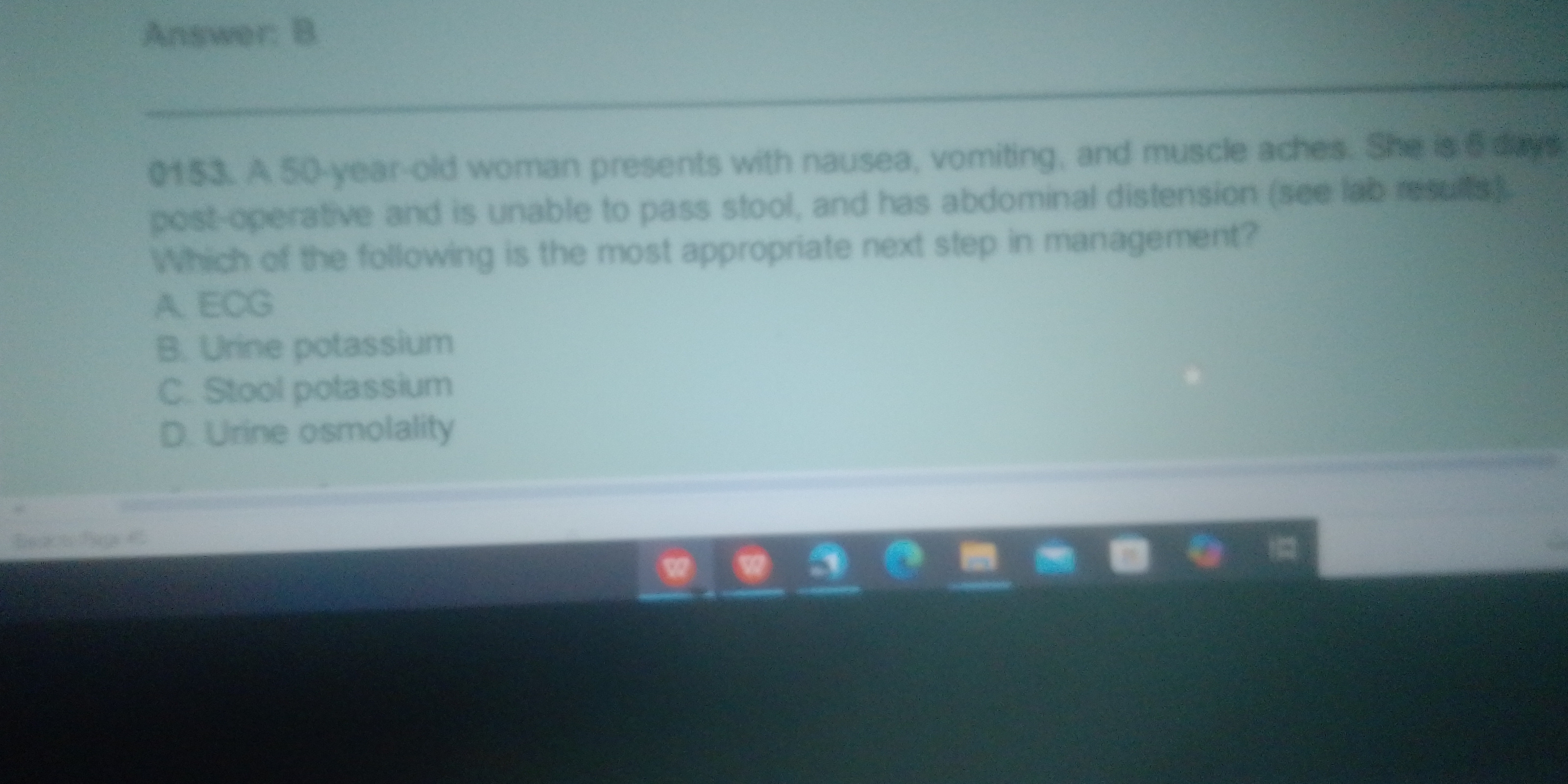A 50-year-old woman presents with nausea, vomiting, and muscle aches. She is 5 days post-operative and is unable to pass stool, and has abdominal distension. Which of the following... A 50-year-old woman presents with nausea, vomiting, and muscle aches. She is 5 days post-operative and is unable to pass stool, and has abdominal distension. Which of the following is the most appropriate next step in management? A. ECG B. Urine potassium C. Stool potassium D. Urine osmolality

Understand the Problem
The question is asking which management step is most appropriate for a patient who is post-operative and experiencing nausea, vomiting, abdominal distension, and an inability to pass stool. The options include various tests or measures related to potassium levels and an ECG.
Answer
Urine potassium.
The most appropriate next step in management is Urine potassium.
Answer for screen readers
The most appropriate next step in management is Urine potassium.
More Information
The presentation suggests a possible postoperative ileus, and potassium imbalances, such as hypokalemia, are common in these cases. Measuring urine potassium helps assess the body's response to potassium changes.
Tips
A common mistake is overlooking electrolyte disturbances in postoperative patients, which can exacerbate symptoms.
Sources
- Hypokalemia: Practice Essentials, Pathophysiology, Etiology - emedicine.medscape.com
- Postoperative Ileus - StatPearls - NCBI Bookshelf - ncbi.nlm.nih.gov
AI-generated content may contain errors. Please verify critical information